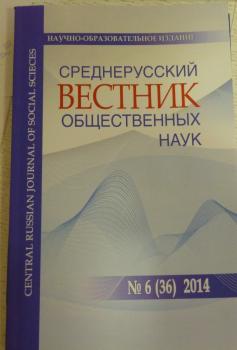The article deals with the main approaches to the definition of the concepts of human resources and staff potential, the concept of personnel potential of Russian public service is allocated. Also the basic elements of its structure are presented, and the factors of internal and external environment are marked having a significant impact on its process of formation and development. The basis of formation of personnel potential of the public administration system in the Russian Federation are shown. The main approaches to the management of the organization: process, system and situation are presented. The article suggests that for achieving public service objectives it is needed to develop and implement an active personnel policy of public service, which involves increased efficiency in the management of human resources, namely the change of values in the management of human resources from collective to individual. Taking into consideration the fact that the human resource capacity of public service includes not only actually existing personal qualities and professional knowledge and skills of civil servants, but also long-term, not achieved or not used reserves at a given time, the author proposed to conduct the study human capacity in the following areas: individual-psychological, socio-psychological and socio-economic.
state human resources, labour resources, public service
1. Armstrong M. Strategicheskoe upravlenie chelovecheskimi resursami. - M.: INFRA - M., 2002.
2. Boldyreva R. Yu., Mosin F. A. Analiz sushchestvuyushchikh podkhodov k ponyatiyu «Kadrovyy potentsial». Izvestiya TulGU. Ekonomicheskie i yuridicheskie nauki. - 2011. - №1-2.
3. Vetoshkina T. Rol´ kompetentsiy v upravlenii personalom. Kadrovik. - № 3-1. - 2008. - S. 11-18.
4. Dan´kova E.V. Sotsial´nye problemy vostrebovannosti kadrovogo potentsiala v sovremennoy Rossii. Sotsiologiya gossluzhby i kadrovoy politiki. - M., 2012.
5. Dobrynin A.N., Dyatlov S.A. Chelovecheskiy kapital v tranzitivnoy ekonomike: formirovanie, otsenka, effektivnost´ ispol´zovaniya. - SPb.: Nauka, 1999.
6. Egorshin A.P. Upravlenie chelovecheskimi resursami: Uchebnik dlya vuzov. - M.: NIMB, 2007.
7. Isachenko I.I., Elizarova O.I., Kondrus´ E.A., Mashinskaya I.S. Upravlenie chelovecheskimi resursami: Ucheb. posobie. - M.: MGUP imeni Ivana Fedorova, 2013. - 206 s.
8. Layker Dzh. Korporativnaya kul´tura Toyota: uroki dlya drugikh kompaniy. - M.: Al´pina Pablisherz, 2011.
9. Mamedova N. A. Sushchnost´ i vozmozhnosti otsenki kadrovogo potentsiala gosudarstvennoy grazhdanskoy sluzhby. Otkrytoe obrazovanie. - 2012. - № 5. - S. 93-96.
10. Tikhonov S. V., Alekhina O. F., Vindman O. V., Zverev A. V. Kontseptsiya «Trekhstupenchatoy modeli» upravleniya proektami. Vestnik NNGU. - 2013. - №6.
11. Upravlenie personalom. Entsiklopedicheskiy slovar´ / Pod red. A.Ya. Kibanova. - M., 1998. - S. 433.





